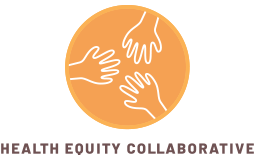30 Oct Time Magazine – Interview w/ Amy Hinojosa on Health Equity Collaborative
Earlier this fall, Time Magazine recently featured an interview with Amy Hinojosa, President and CEO of MANA, A National Latina Organization about the ongoing work of the Health Equity Collaborative (HEC). The full interview can be found here and below.
 As President and CEO of MANA, A National Latina Organization, Amy Hinojosa is working to empower Latinas through leadership development, community service, and advocacy. MANA, the oldest and largest Latina membership organization in the United States, and its sister organization, The MANA Action Fund, are a leading Latina voice on various major policy issues, including education, healthcare, financial literacy, immigration reform, and civil rights.
As President and CEO of MANA, A National Latina Organization, Amy Hinojosa is working to empower Latinas through leadership development, community service, and advocacy. MANA, the oldest and largest Latina membership organization in the United States, and its sister organization, The MANA Action Fund, are a leading Latina voice on various major policy issues, including education, healthcare, financial literacy, immigration reform, and civil rights.
In 2019, Hinojosa helped to launch a new project to address discrimination and pervasive inequities in the U.S. healthcare system. The Health Equity Collaborative (HEC) is a community comprised of dozens of national, public health, patient advocacy, civil rights, and multicultural organizations committed to supporting equity and combatting disparities experienced by underserved communities. In April 2023, HEC organized a letter to the 118th Congress and President Biden, with the support of more than 50 organizations outlining health equity guidelines for policymakers to consider when pursuing healthcare initiatives.
Q: Can you tell us about the inspiration behind the Health Equity Collaborative?
People of color and underserved populations experience higher rates of illness and death across a wide range of health conditions. The COVID-19 pandemic only worsened or magnified these inequities. HEC was developed to address these challenges head-on.
Our goal is to foster conversations and collaborations among community leaders, policymakers, and different organizations working on behalf of underserved communities and advance health equity and confront pervasive disparities. We publish research, host educational briefings and events, and champion policies that will improve the health and well-being of vulnerable populations. What inspires us to do this work every day? Check out our short video on why Health Equity Matters.
Q: Can you share some of the key milestones and achievements of HEC since its founding?
In April of this year, HEC sent the third iteration of our Health Equity Guidelines letter to the 118th Congress and President Biden. Fifty-one organizations joined us this year to encourage policymakers to develop solutions and measurably improve health equity and address social determinants of health. This is the highest number of organizations we have had sign-on to our effort to date.
In addition to these letters, we have published four white papers, five educational videos, multiple one-pagers and coalition letters, and dozens of op-eds and blogs on many healthcare subjects that are top concerns for minority and underserved communities. This includes reforming the 340B Drug Pricing Program to ensure savings are reaching the populations who need it most, improving diversity in clinical trials, promoting healthcare innovations, and encouraging increased regulation and oversight of Pharmacy Benefit Managers (PBMs). Check out our latest white paper outlining healthcare reform priorities: Healthcare Reform Proposals to Support Underserved Communities. As a healthcare policy resource, we host briefings with leaders in our community and unite groups addressing pressing healthcare policy issues.
HEC’s videos alone have received over six million impressions and more than 2.3 million views online. We have spoken at major conferences such as SXSW, been featured on Comcast Newsmakers – a national news program that reaches more than 21 million homes, hosted private briefings with Members of Congress and White House officials, and partnered on a multi-lingual Public Service Announcement encouraging vaccines with the Ad Council, COVID Collaborative and other national organizations, featuring Pope Francis. HEC’s message is reaching new people from different backgrounds and communities daily. We are so excited about the progress we have made but recognize that there is much more work to be done.
Q: What are the biggest challenges currently being faced in the fight for health equity?
Rising costs, access barriers, and discriminatory practices are prevalent throughout the U.S. healthcare system. Underserved communities are currently facing the brunt of these challenges.
Problems of abuse in the 340B Drug Pricing Program are a growing concern. Over the past year, we have seen reports in The New York Times, The Wall Street Journal, and other media outlets about hospitals taking advantage of the 340B program on the backs of low-income and minority communities. This is not how Congress intended the program to operate. It is becoming more apparent that reforms are needed so the program benefits the populations it was intended to serve.
In addition to reforms, HEC is encouraging policymakers to address rising healthcare costs and pursue measures to protect vulnerable populations as thousands continue to lose Medicaid coverage after the end of the COVID-19 pandemic.
Regarding these and other healthcare issues, HEC aims to use our platform to foster collaborations between healthcare stakeholders and advocate for policy changes to prioritize health equity.
Q: What are HEC’s future plans for expanding its reach to further promote health equity in underserved communities?
HEC has ambitious plans to expand our reach in new and creative ways to promote health equity in the years ahead. Our goal is to continue to grow the collaboration by partnering with new organizations and individuals that share our mission to advance health equity principles and policies. Later this year, we will be publishing additional research on non-profit hospitals and how to ensure they fulfill their charitable missions and obligation to address community needs. There is so much work to be done to realize better health outcomes for our nation’s most vulnerable populations.


